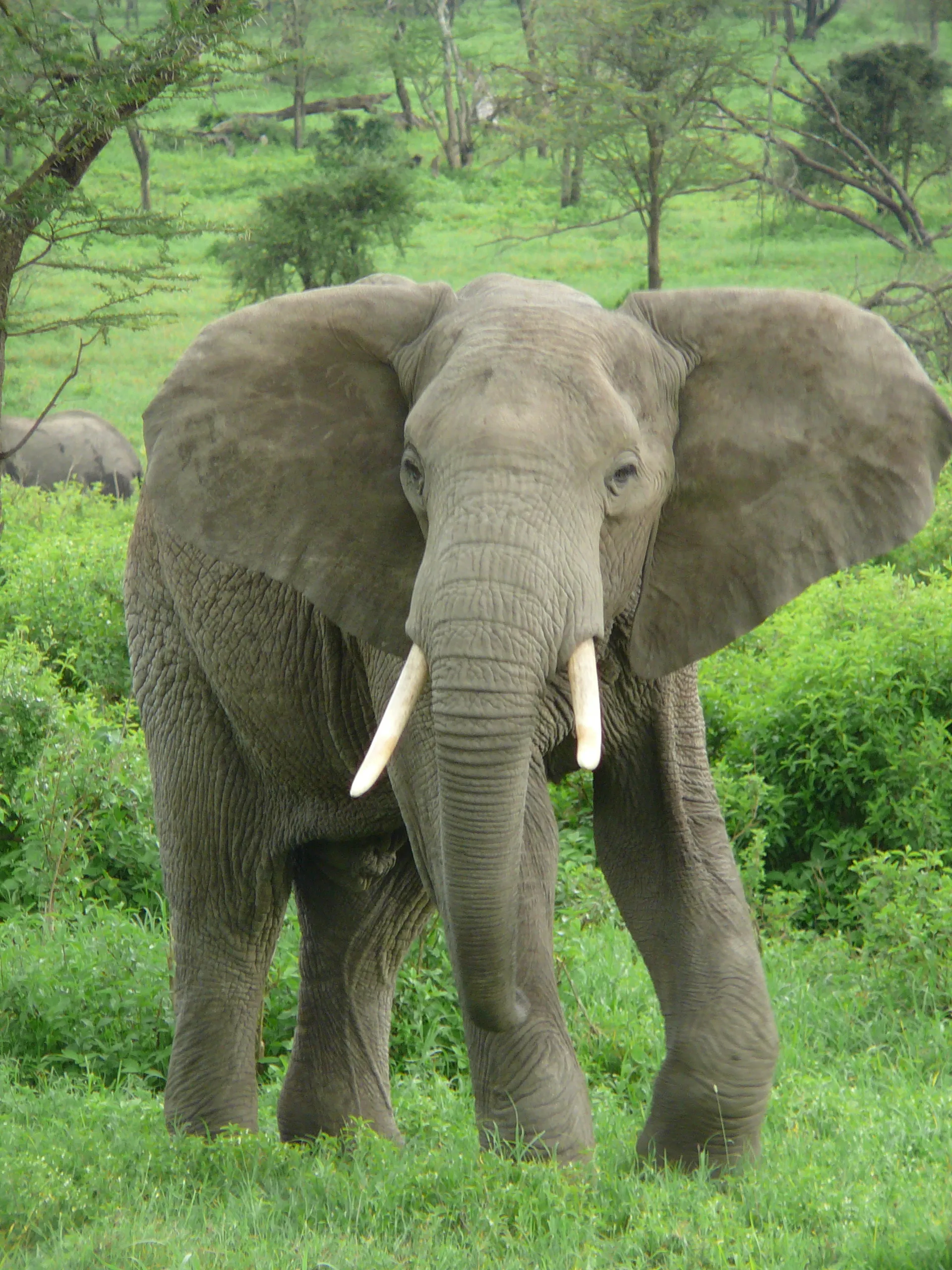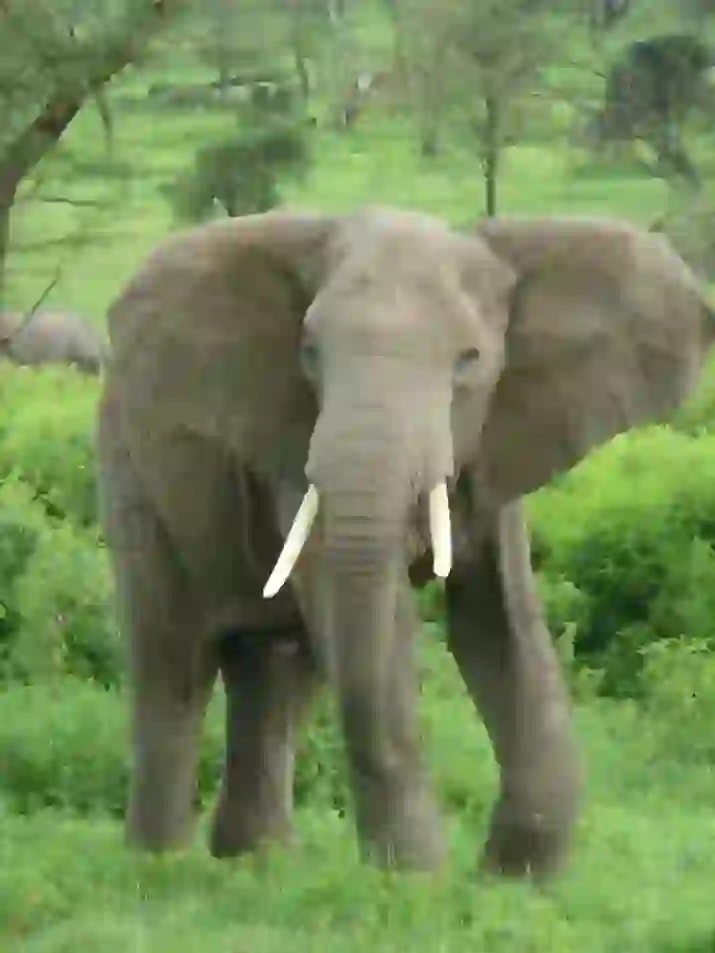
African Elephant
African Elephant
African Elephant
The African elephant, the largest land animal on Earth. Their massive size, long tusks, and intelligence captivate us. How do these family-oriented creatures survive in the harsh wilderness? Let's explore the hidden society of African elephants and the challenges they face.
African Elephant Basic Infomation

| Property | Value |
|---|---|
| Scientific Name | Loxodonta africana |
| Taxonomic Status | ACCEPTED |
| Rank | SPECIES |
| Kingdom | Animalia |
| Phylum | Chordata |
| Class | Mammalia |
| Order | Proboscidea |
| Family | Elephantidae |
| Genus | Loxodonta |
| Conservation Status | Vulnerable |

Size
They stand about 3.3 to 4 meters tall at the shoulder, and males can weigh up to 6,000 kilograms or more. Females are slightly smaller and lighter than males.

Lifespan
They can live for 60 to 70 years in the wild.

Distribution
They are widely distributed in the savannas, grasslands, and forests of Africa. They are found in sub-Saharan African countries.
African Elephant Q&A

What are the characteristics of African elephants?
African elephants are characterized by their large ears, long tusks, and long trunks. Their large ears have a large surface area and many blood vessels, which help them regulate their body temperature. They use their long tusks to dig in the soil, knock down trees, and fight off enemies.
Their long trunks are used for a variety of purposes, including breathing, smelling, drinking water, and grasping objects. They also use their trunks for communication, intertwining them or raising them high to greet each other or express emotions.

What do African elephants eat?
African elephants are herbivores, feeding on grasses, leaves, branches, fruits, and bark. They can eat over 150 kilograms of plants per day!
They skillfully use their trunks to pick up grass from the ground and pluck leaves from trees. They also use their tusks to strip bark from trees and dig in the ground for roots.

What kind of lives do African elephants lead?
African elephants live in herds consisting of females and their young. The leader of the herd is the oldest and most experienced female.
Males leave the herd when they become adults and live alone or form small groups with other males. During the mating season, males approach female herds and compete for females.

[Quiz!] How big are African elephant babies when they are born?
African elephant babies weigh a whopping… about 100 kilograms at birth! That's about the same weight as a human adult. Babies can stand up soon after birth and walk behind their mothers.

[Quiz!] How do African elephants communicate?
African elephants communicate in various ways. They can make a variety of sounds using their trunks. They also use their bodies to greet each other and express emotions.
They can even communicate with their herd mates over long distances by sensing ground vibrations through the soles of their feet!

[Quiz!] Why are African elephants endangered?
The main reason for the decline in African elephant populations is… poaching. Their tusks are highly valued as ivory, making them a target for poachers.
Habitat destruction is also a factor in their decline. Deforestation and agricultural development are destroying their homes. To protect African elephants, it is important to stop poaching and conserve their habitats.

Would you like to become a part of the 'Animalbook.jp'?
Turn your knowledge into Q&A and share it with the world. ※Publication will be activated after purchase. Let's share information together!
African Elephant Type of List

Efforts to Protect African Elephants
- Strengthening anti-poaching patrols
- Regulating the ivory trade
- Habitat conservation
- Educating local communities
- Promoting ecotourism
Information
Congratulations! You are the first commenter!

Create Your Favorite List!
African Elephant
Save the animals you love! Build your own list to quickly revisit your favorites later.

Would you like to leave a comment?
※Please note: This is for the purchase of rights to post comments within the article.
Find Your Favorites!
Our shop offers a unique and attractive selection of goods themed around various animals.
African Elephant References
African Elephant Introduction of media used

The author is nickandmel2006 on flickr, CC BY-SA 2.0, via Wikimedia Commons

Help Enrich Our Animalbook.jp with Your Media!
We are constantly looking to expand and enrich our Animalbook.jp with amazing photos and videos of animals. If you have any media that you'd like to share, please contribute and help us showcase the beauty and diversity of the animal kingdom. Your submissions will be credited and featured in our encyclopedia, reaching a wide audience of animal lovers.


















